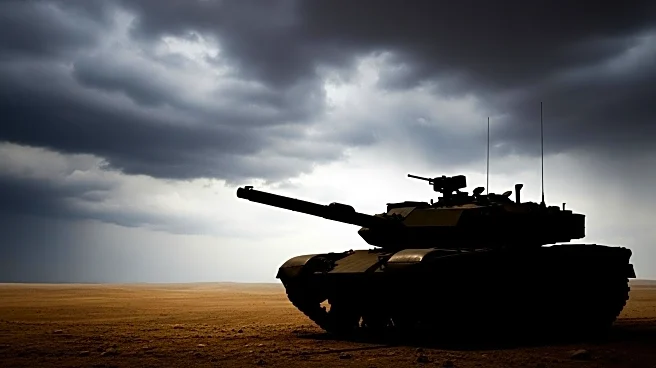What is the story about?
What's Happening?
Iran's Revolutionary Guard has issued a warning of 'deadly' retaliation if its adversaries act against the nation, following reports of missile tests near Tehran and unusual nighttime military activities. The statement, broadcasted by state media, emphasized Iran's readiness to seize the initiative on the battlefield. Reports from Iran International, a London-based opposition media outlet, suggested that Iran conducted its first intercontinental ballistic missile test, showcasing its military capabilities amidst tensions with Israel and the United States. Eyewitnesses reported visible smoke trails from Tehran to several northeastern cities, while social media users shared images of glowing objects in the sky. Iran's Fars news agency described the events as 'internal system tests,' downplaying the military implications. Additionally, air defense systems were reportedly activated in western Tehran, though official comments were not provided.
Why It's Important?
The developments underscore escalating tensions in the Middle East, particularly between Iran and Israel, as well as the United States. Iran's demonstration of military strength through missile tests could further strain diplomatic relations and impact regional security dynamics. The situation is compounded by the U.N. Security Council's decision to maintain sanctions on Iran, with Britain, France, and Germany invoking the 'snapback' mechanism from the 2015 nuclear deal. This reimposition of sanctions could affect Iran's economy and its international relations, potentially leading to increased isolation or confrontation. The broader implications include potential shifts in military alliances and strategies within the region, affecting global geopolitical stability.
What's Next?
Iranian President Masoud Pezeshkian has vowed to overcome sanctions, indicating potential resilience and defiance against international pressure. As full sanctions are expected to return by September 27, Iran may seek alternative economic partnerships or escalate military posturing to assert its sovereignty. The international community, particularly the U.N. and involved nations, may need to address the growing tensions through diplomatic channels to prevent further escalation. Monitoring Iran's military activities and regional responses will be crucial in assessing future developments.














